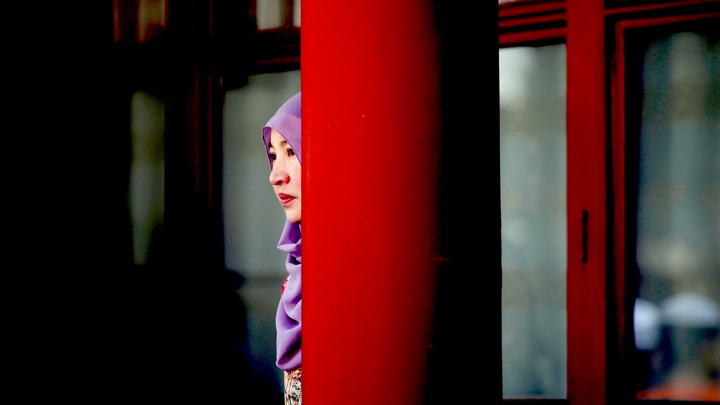Will the U.S. sanction China over its Muslim ‘re-education’ camps?

Over the past year, a vast system of extralegal internment camps for Muslims in China’s far-western region of Xinjiang has quickly come to light. As we document in our recent explainer on the situation, major media reporting from the Associated Press, the Wall Street Journal, BuzzFeed, Agence France-Presse, the Financial Times, Radio Free Asia, and more — in addition to research done by Adrian Zenz of the European School of Culture and Theology in Germany, and others — has documented a systematic campaign to detain and “re-educate” ethnic minorities, particularly Uyghurs, in Xinjiang.
- Until recently, international attention to Xinjiang was low, and in many ways, it still is, given the scale and apparent intent — the effective criminalization of an entire ethnic identity — of the internment campaign. Recently, activists and scholars have been promoting two petitions on Change.org: one urging China to free “the Disappeared” in Xinjiang, and another urging the “Immediate Release of Professor Rahile Dawut and other Uyghur scholars.”
- International attention focused briefly on Xinjiang a month ago, as members of the UN Committee on the Elimination of Racial Discrimination (CERD) said that they had received “many numerous and credible reports” of a “massive internment camp that is shrouded in secrecy,” and contained as many as 1 million Muslims.
- China denied arbitrary, mass-scale detentions in hearings in Geneva, Switzerland.
- The UN committee doesn’t believe it. Today, Reuters reports that CERD released its findings from the review of China’s practices in Xinjiang, and said it was alarmed by: “Numerous reports of detention of large numbers of ethnic Uighurs and other Muslim minorities held incommunicado and often for long periods, without being charged or tried, under the pretext of countering terrorism and religious extremism.”
- “We are recommending to China if this practice exists, to halt it. We are asking China to release people if they don’t have a legal ground to be detained,” panel member Nicolas Marugan told Reuters. You can read more about the lack of clear legal basis of re-education camps on China Law Translate.
- Here is a direct link to the “concluding observations” of CERD with regards to China. Comments on Xinjiang begin at point #40. It is bundled together with other information from the regular hearings on China and several other countries and territories here.
- CERD “asked China to report back within a year on its main concerns,” Reuters reports.
Before that year is up, it is possible that China will face sanctions for its actions in Xinjiang.
- A bipartisan group of 17 U.S. senators urged the Trump administration to sanction seven Chinese officials, most importantly Chen Quanguo 陈全国, the Party secretary in Xinjiang, and two Chinese makers of surveillance technology that now blankets Xinjiang: Hikvision and Zhejiang Dahua Technology. (Wall Street Journal — paywall) (full letter text via Congressional-Executive Commission on China)
- “It would not be surprising to see Magnitsky sanctions come out on Xinjiang,” Todd Stein, a former U.S. State Department official who worked on human rights in China, told the Journal.
- But it is unclear what effect “Magnitsky”-style sanctions would have, experts say. The Global Magnitsky Act was designed to target Russian officials with large overseas financial holdings, but it is unlikely that Chen, or other top officials, hold any money outside Chinese banks.
- Also, as China is now convinced that the U.S. trade war is really just part of a broader effort to contain China’s rise, any sanctions “makes it very easy for China to characterize opposition to its policies in Xinjiang as simply part and parcel of efforts to constrain China’s economic development and its political rise,” Australian scholar David Brophy points out.
- China dismissed the call for sanctions, as a Foreign Ministry spokesperson chided the lawmakers for “poking their noses in other countries’ affairs and pretending to be a judge of human rights,” AP reports.
Other reports relating to control of religion in China:
-
China strengthens efforts to adapt religions to local culture, society / Global Times
“Yan Kejia, director of the Shanghai Academy of Social Sciences’ Institute of Religious Studies, told the Global Times that in order for religions to develop, they must blend in with local culture and society.”
“The aim of the country’s management of religions is to make religions play a positive role in society, he said.” -
China spends big in Tibet to avert a crisis when the Dalai Lama dies / NBC
“During a rare Chinese government-organized visit to the region, local officials described a development program that they contend will bring prosperity to the 3.3 million Tibetans who inhabit a vast area roughly double the size of Texas.” -
China’s Hui mosque protests blamed on ‘reckless’ local officials / SCMP
“A rare public protest by thousands of Hui Muslims this month was caused by local officials’ recklessness, Chinese authorities said on Thursday, without settling concerns a large mosque in the northwestern region would be razed.” -
For a ‘house church’ in Beijing, CCTV cameras and eviction / Reuters
“The Zion church in Beijing, one of the city’s largest unofficial Protestant “house” churches, has operated with relative freedom for years, hosting hundreds of worshippers every weekend in an expansive, specially renovated hall in north Beijing.”
“But in April, city authorities asked the church to install 24 closed-circuit television (CCTV) cameras in the building for ‘security’, Zion’s head pastor, Jin Mingri, told Reuters.”






